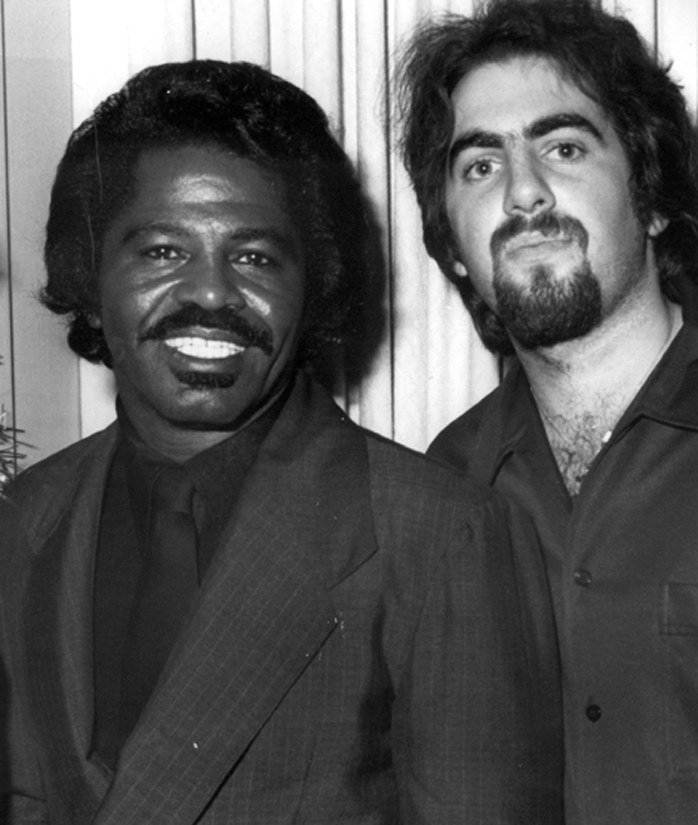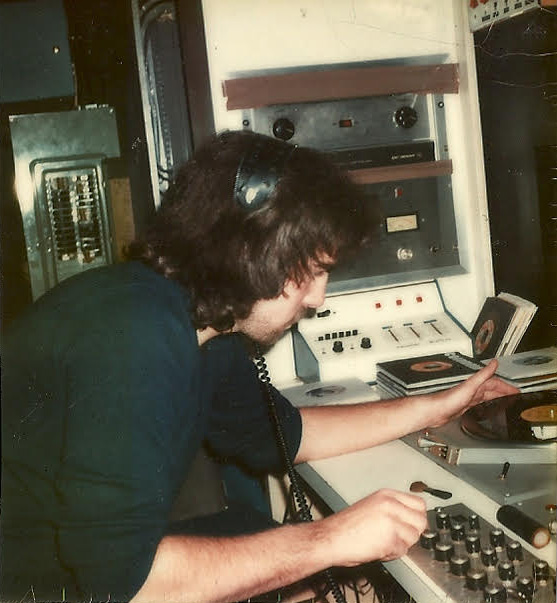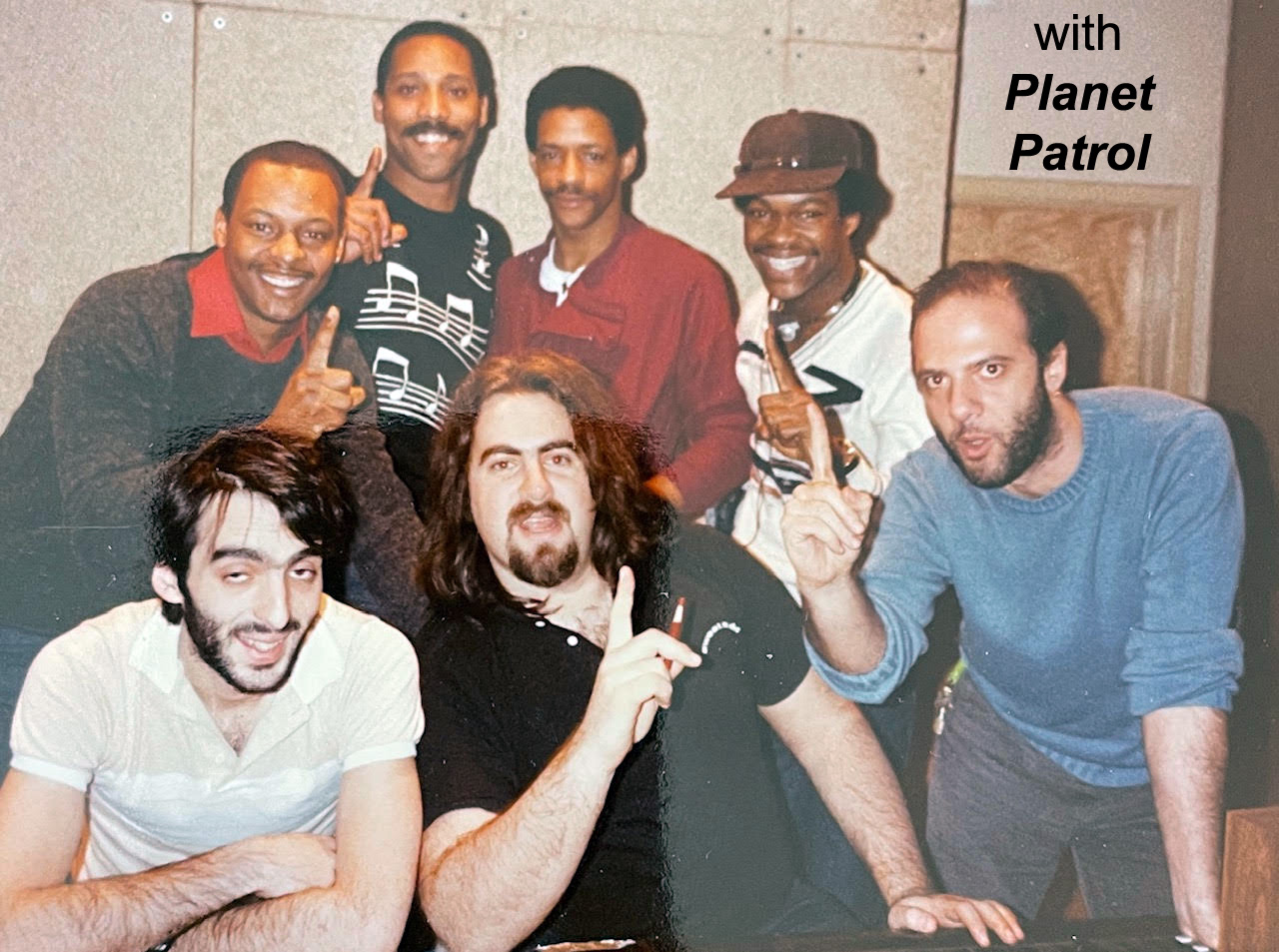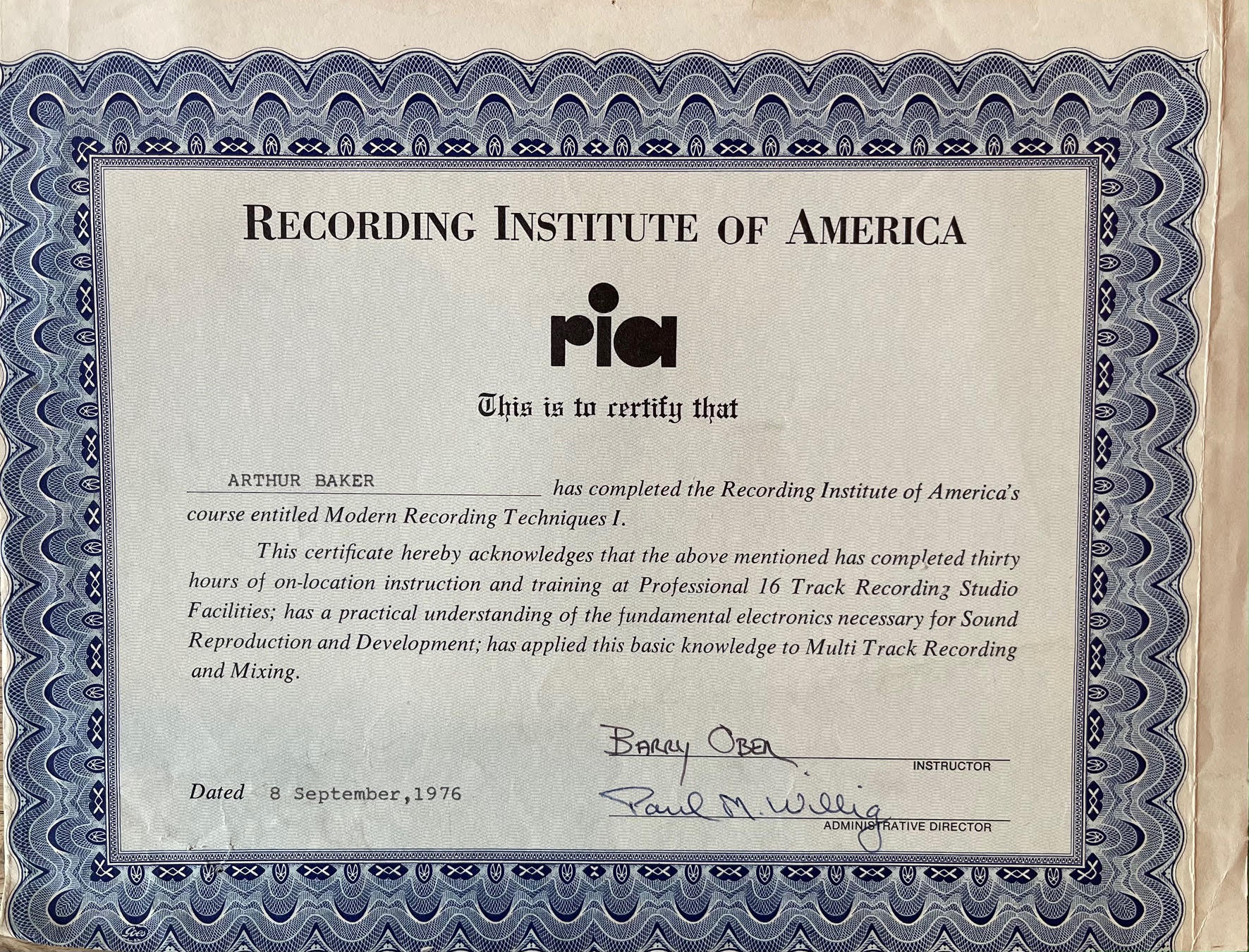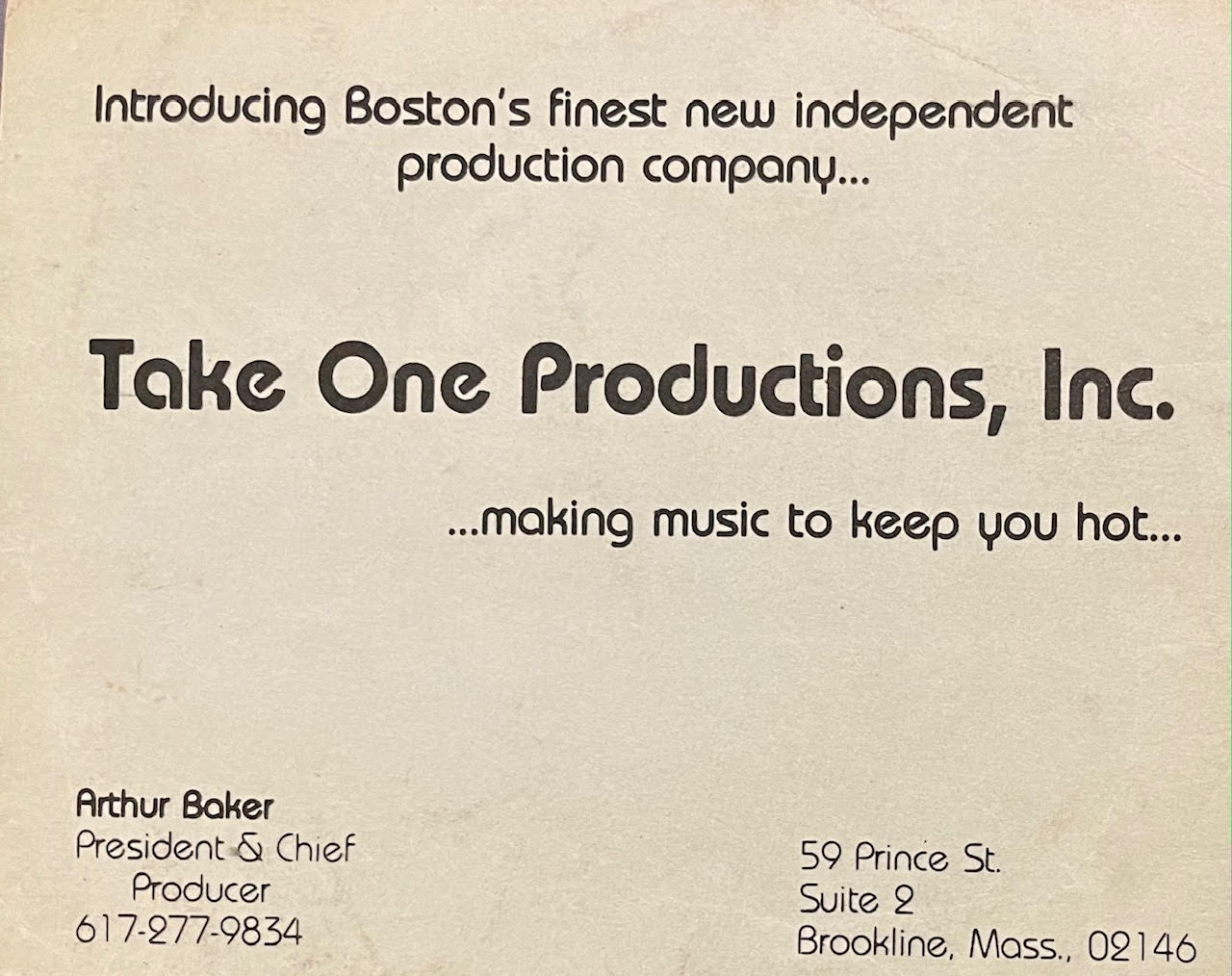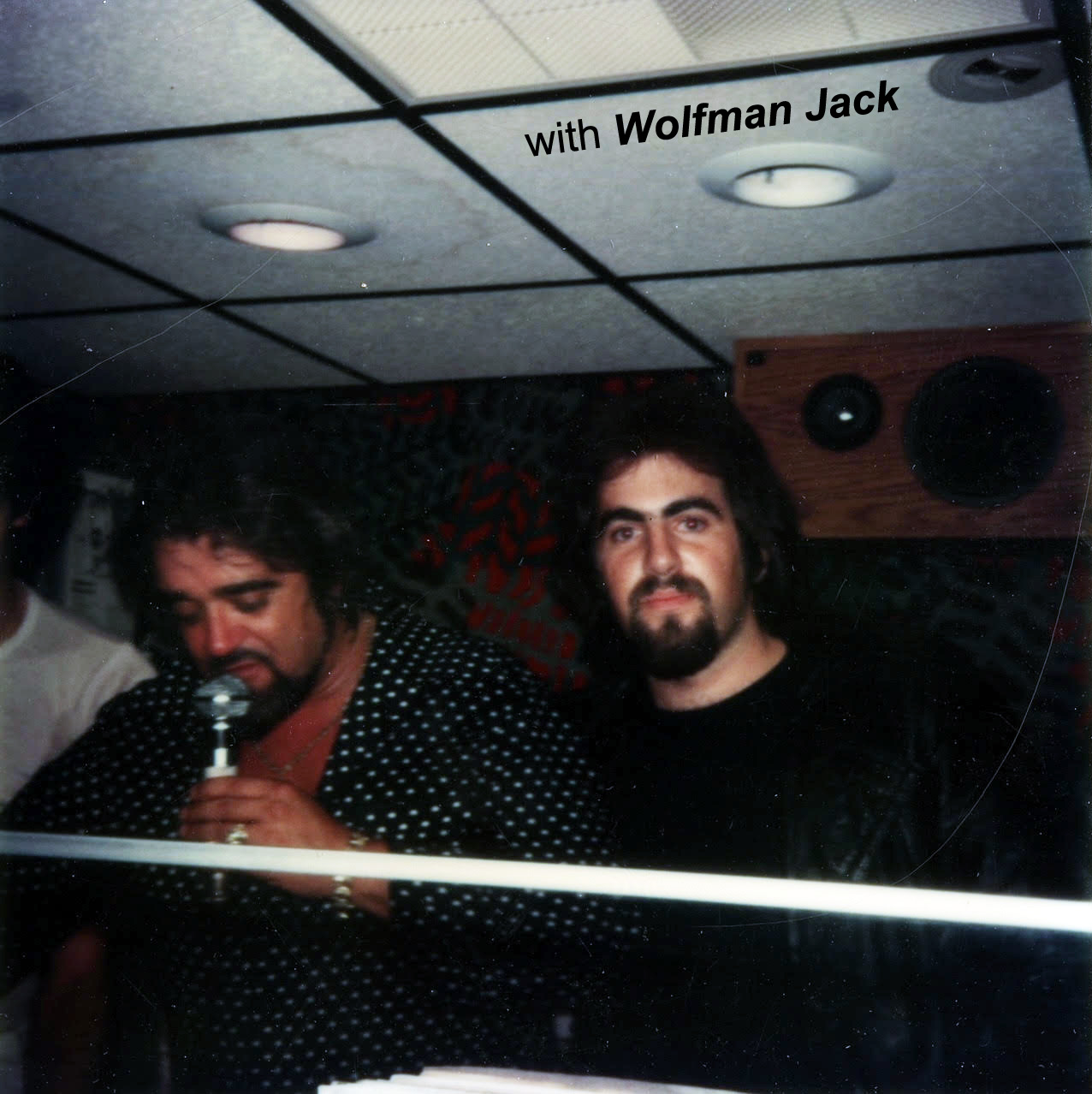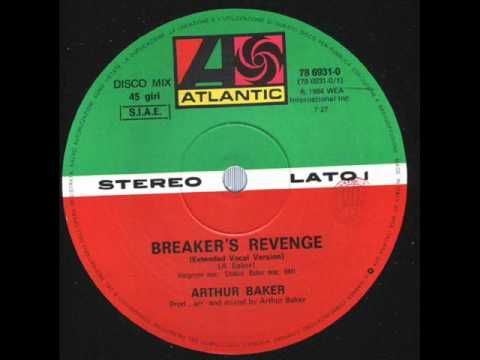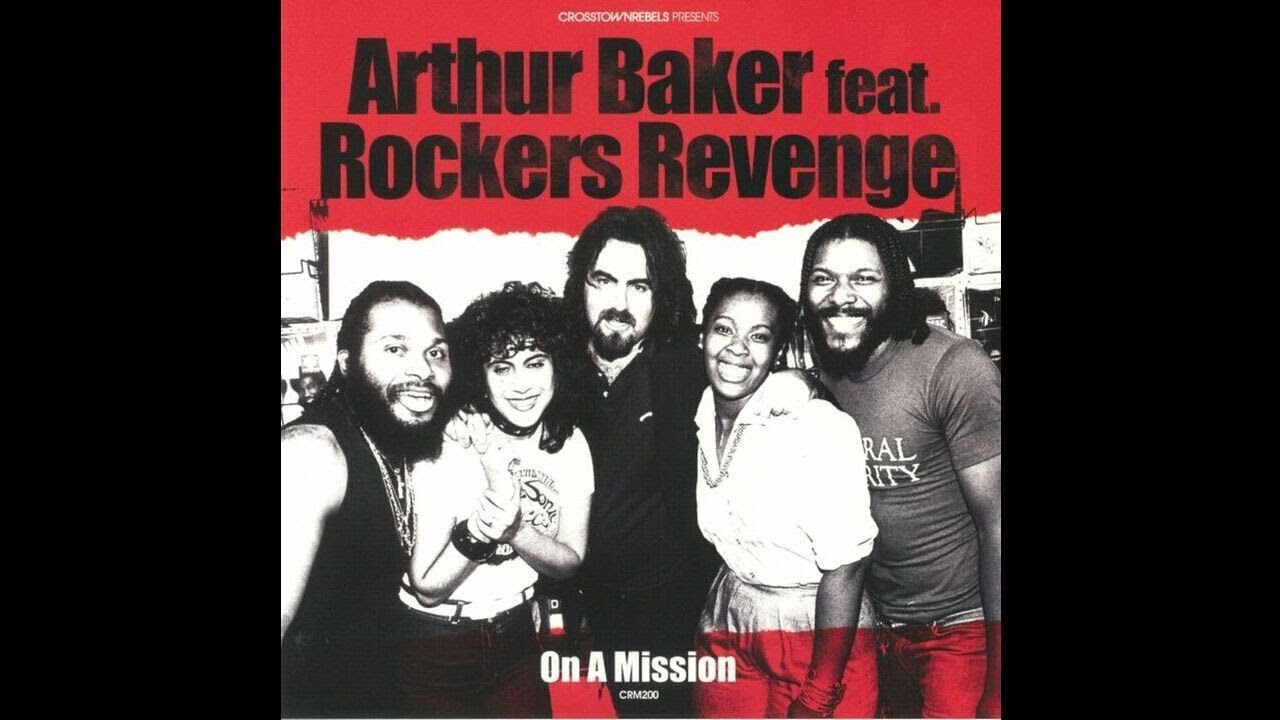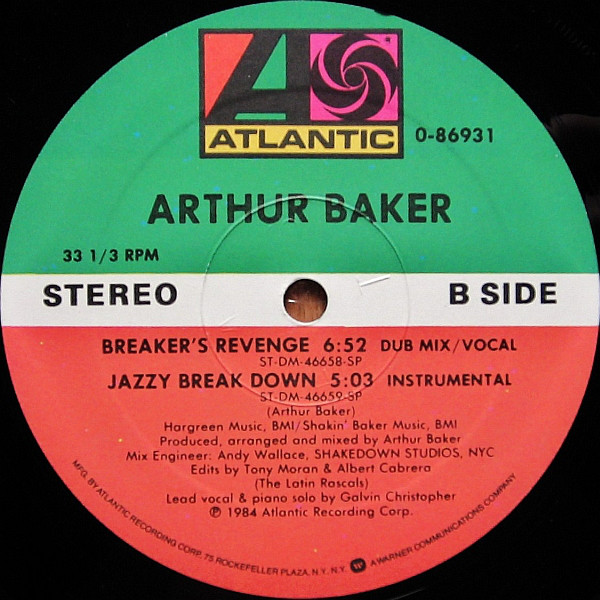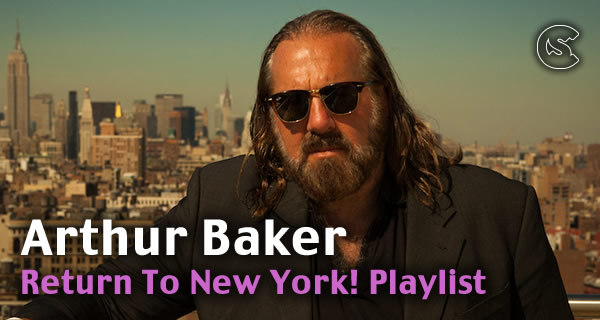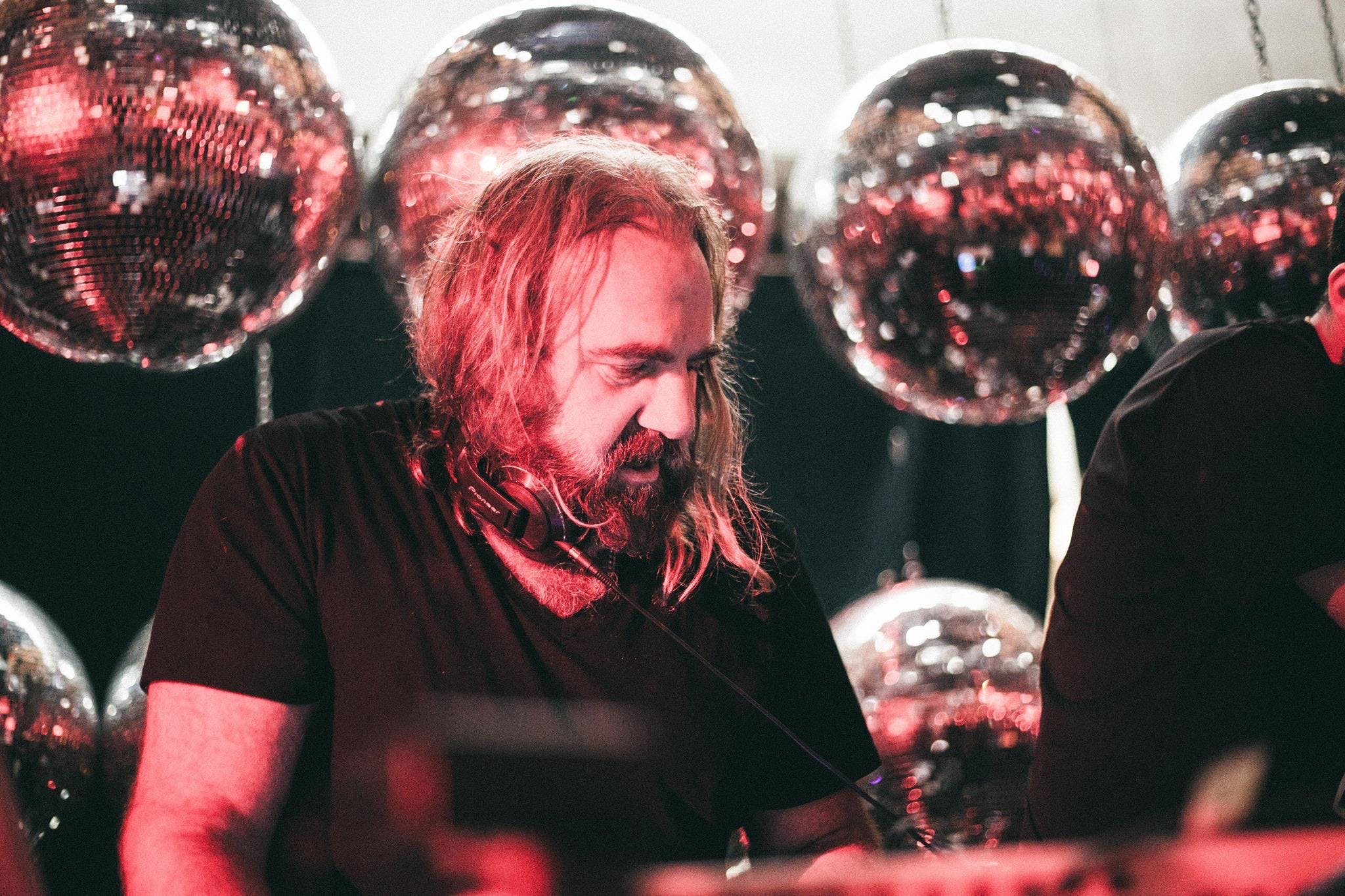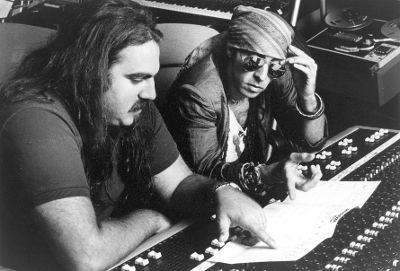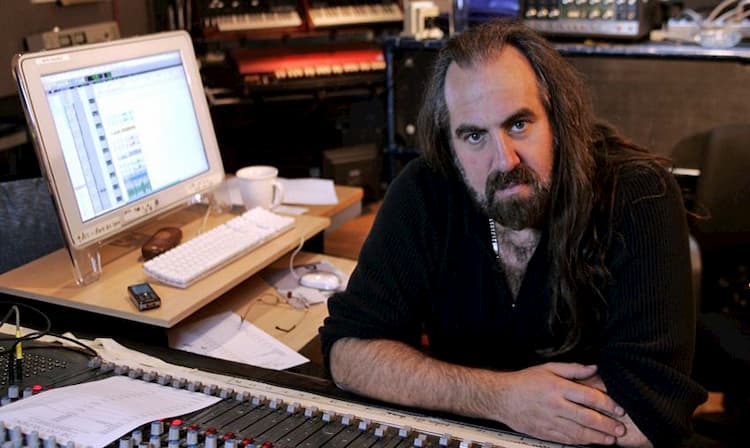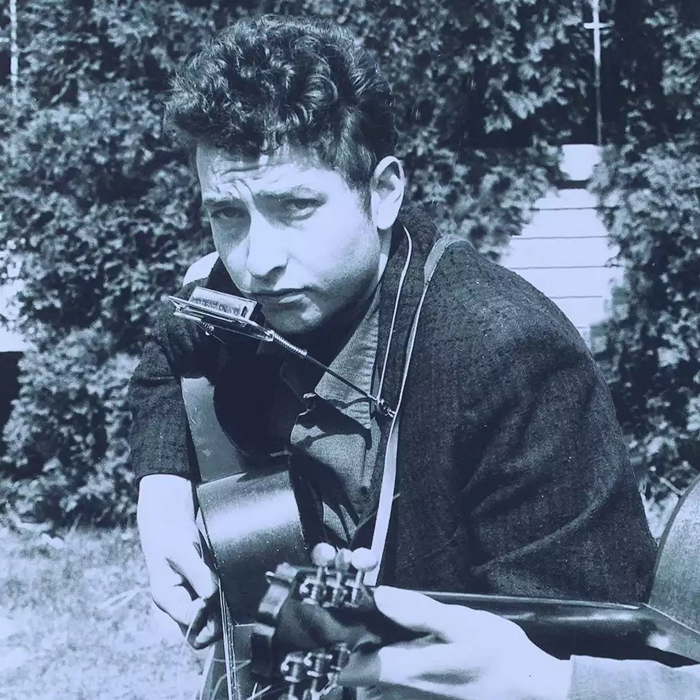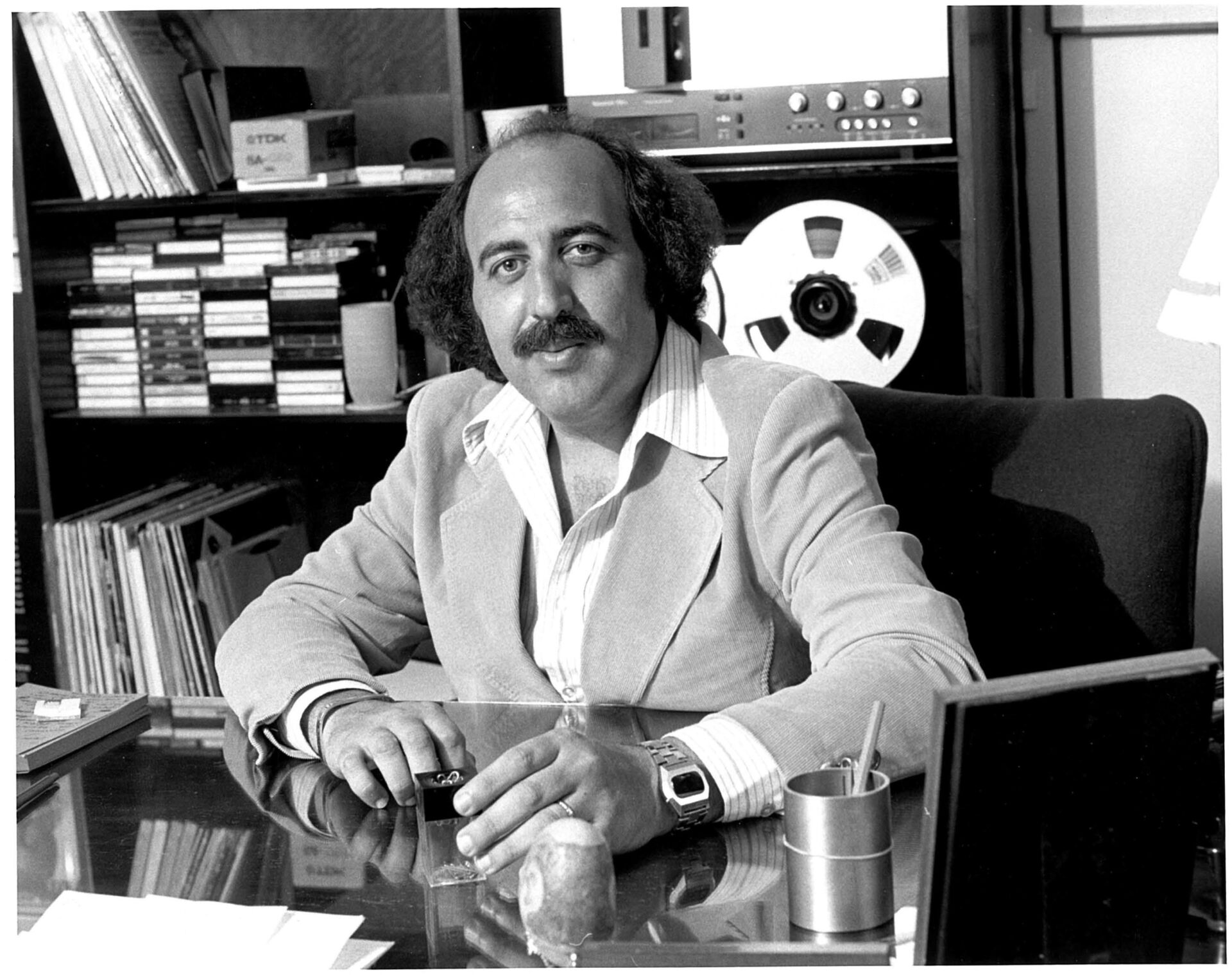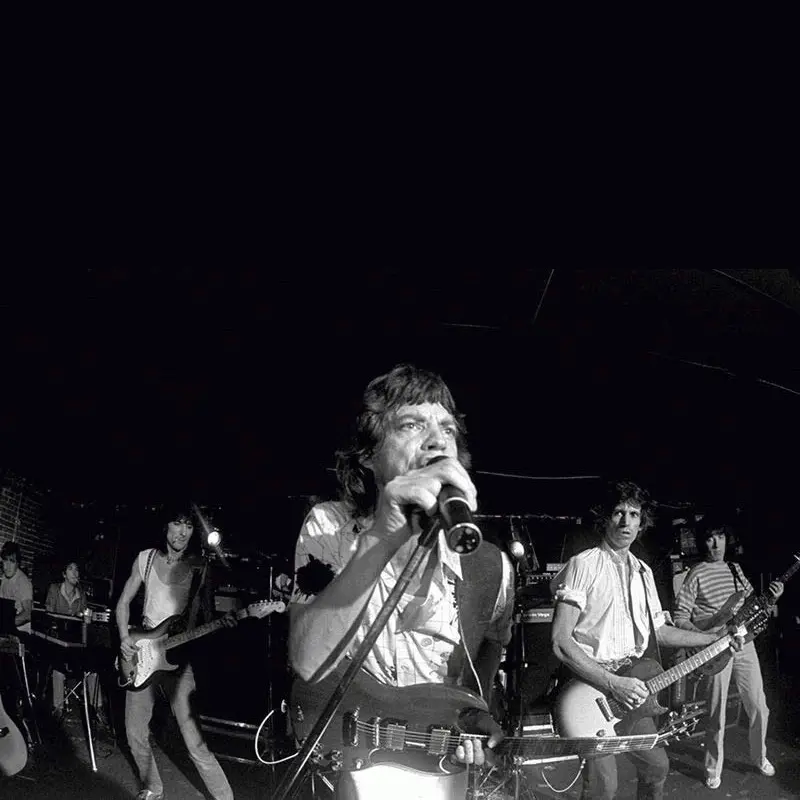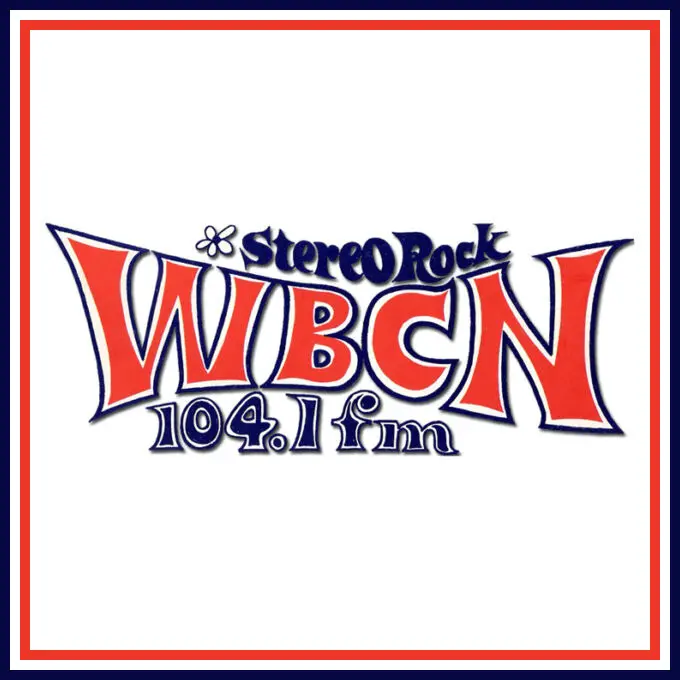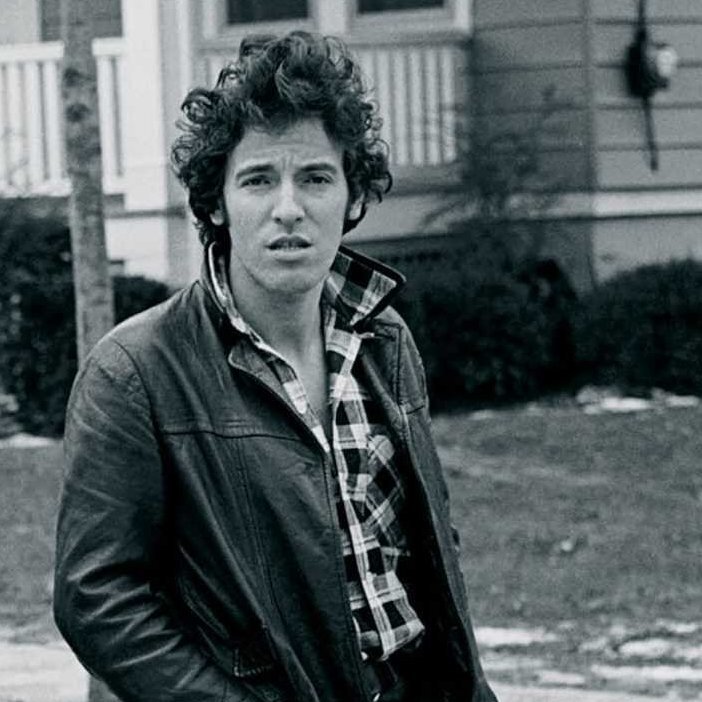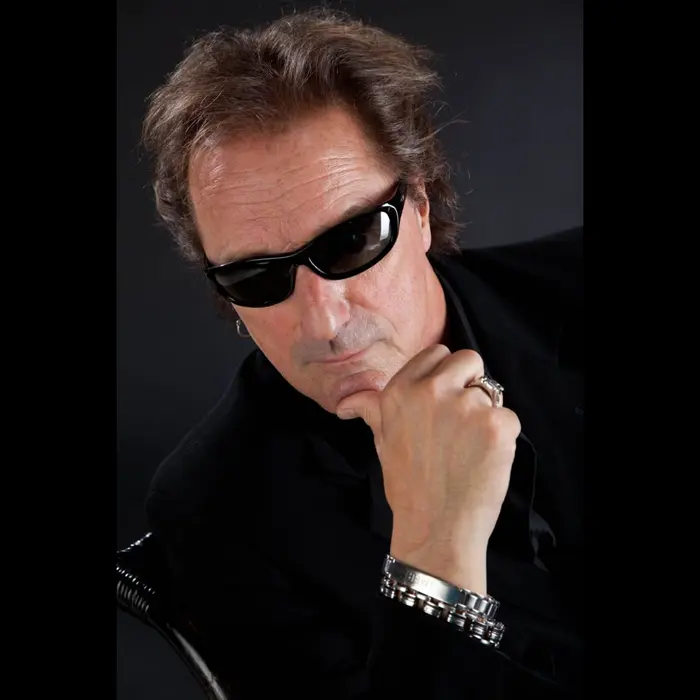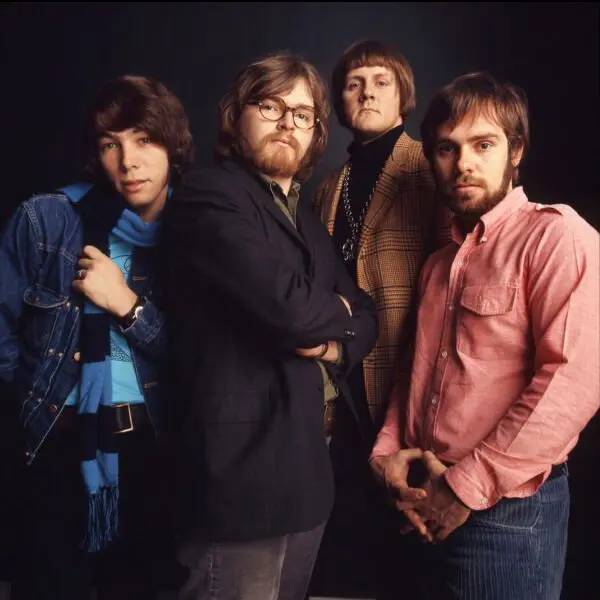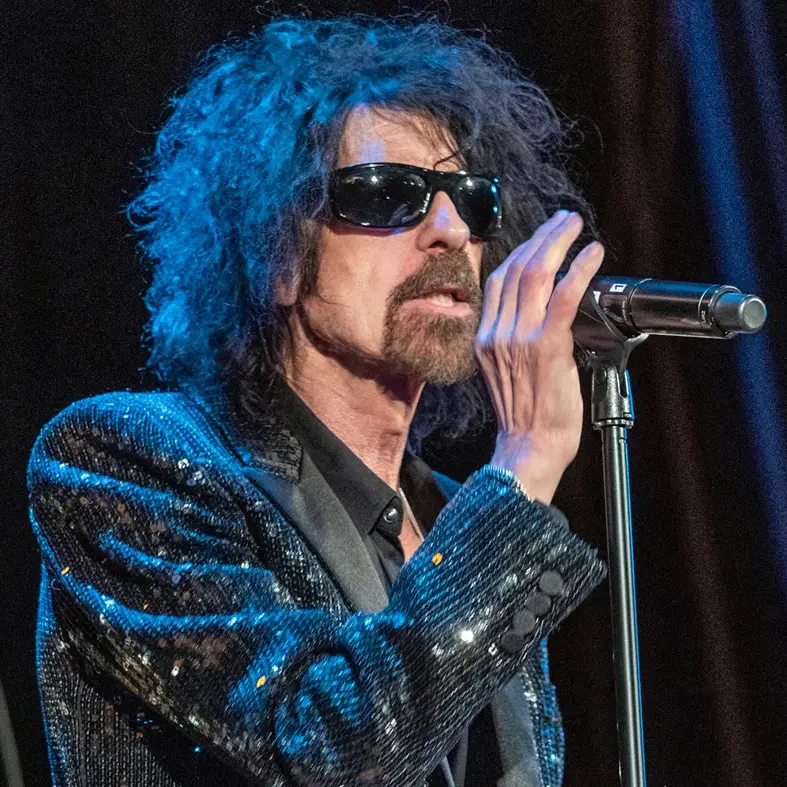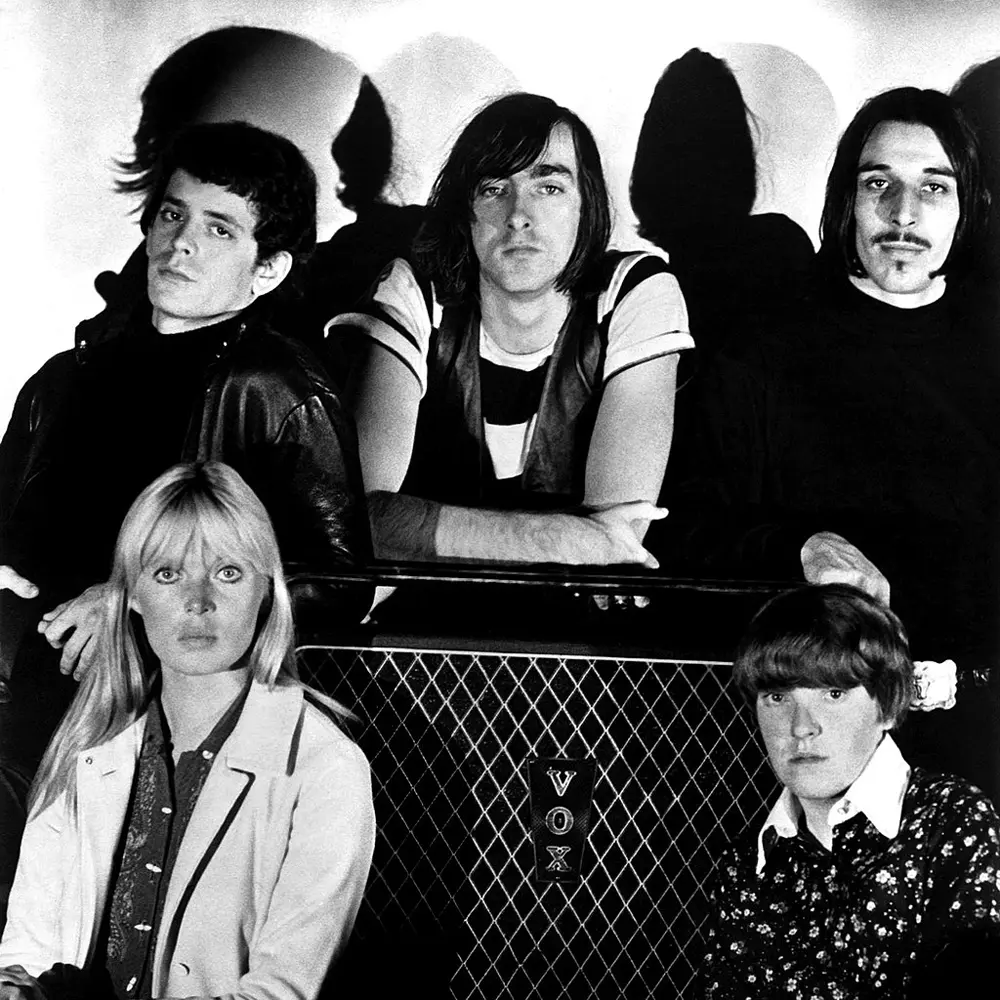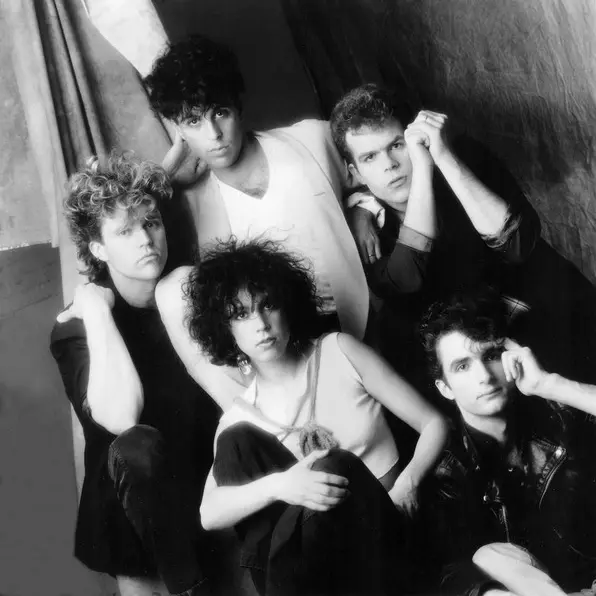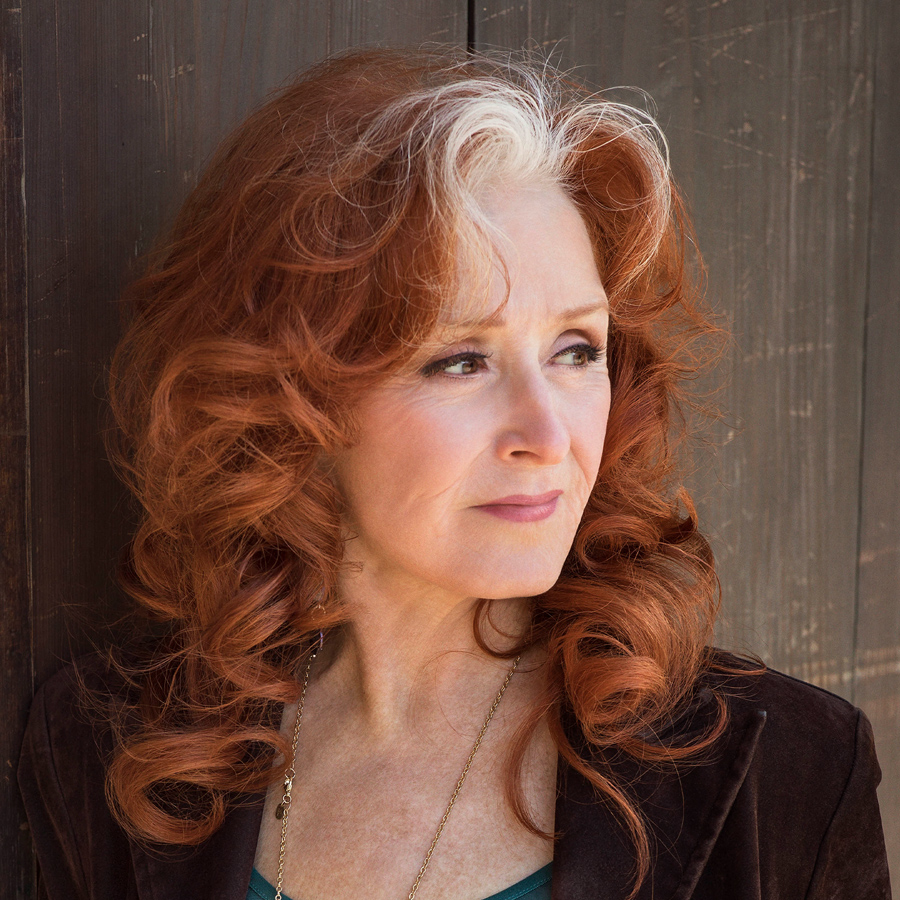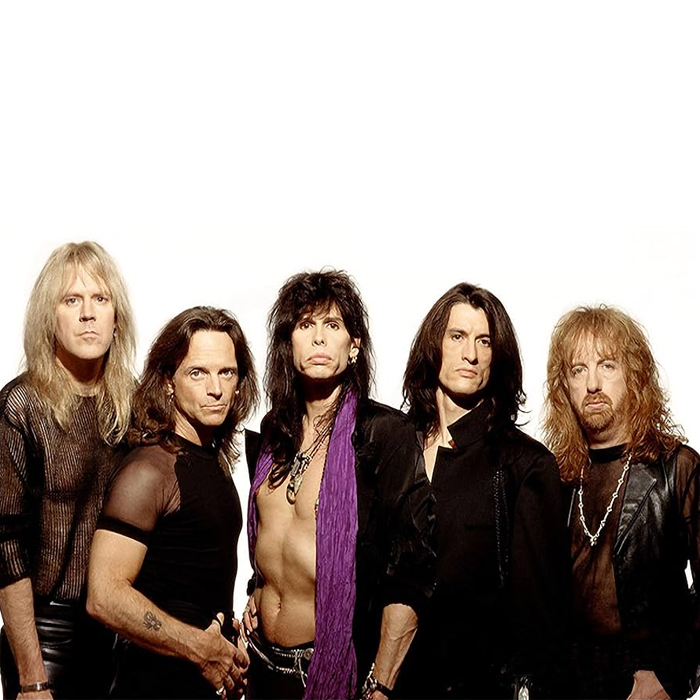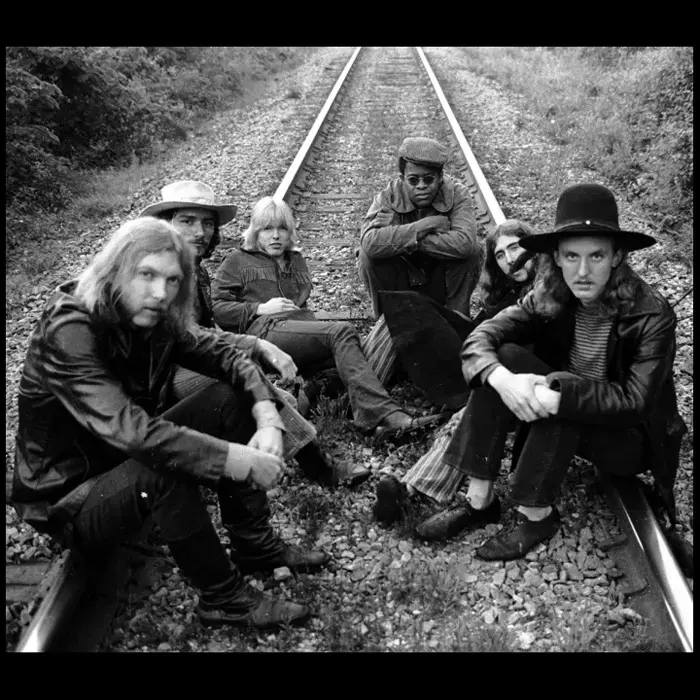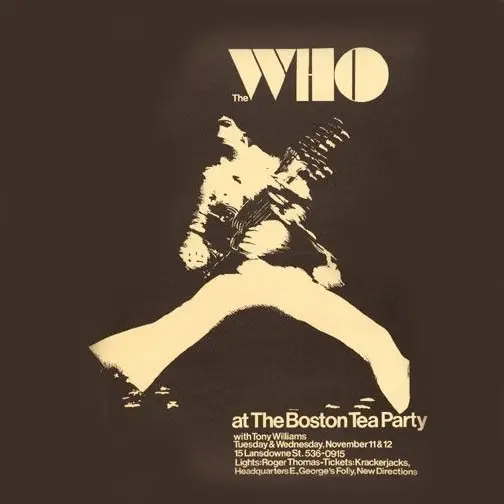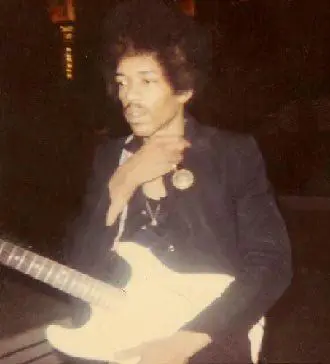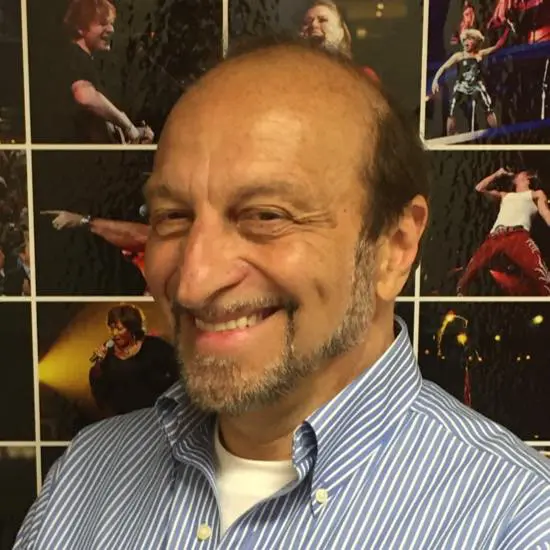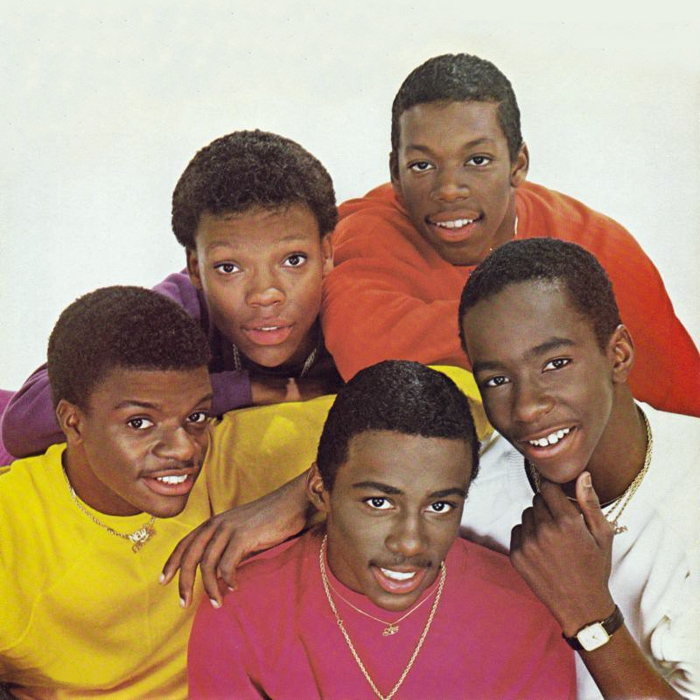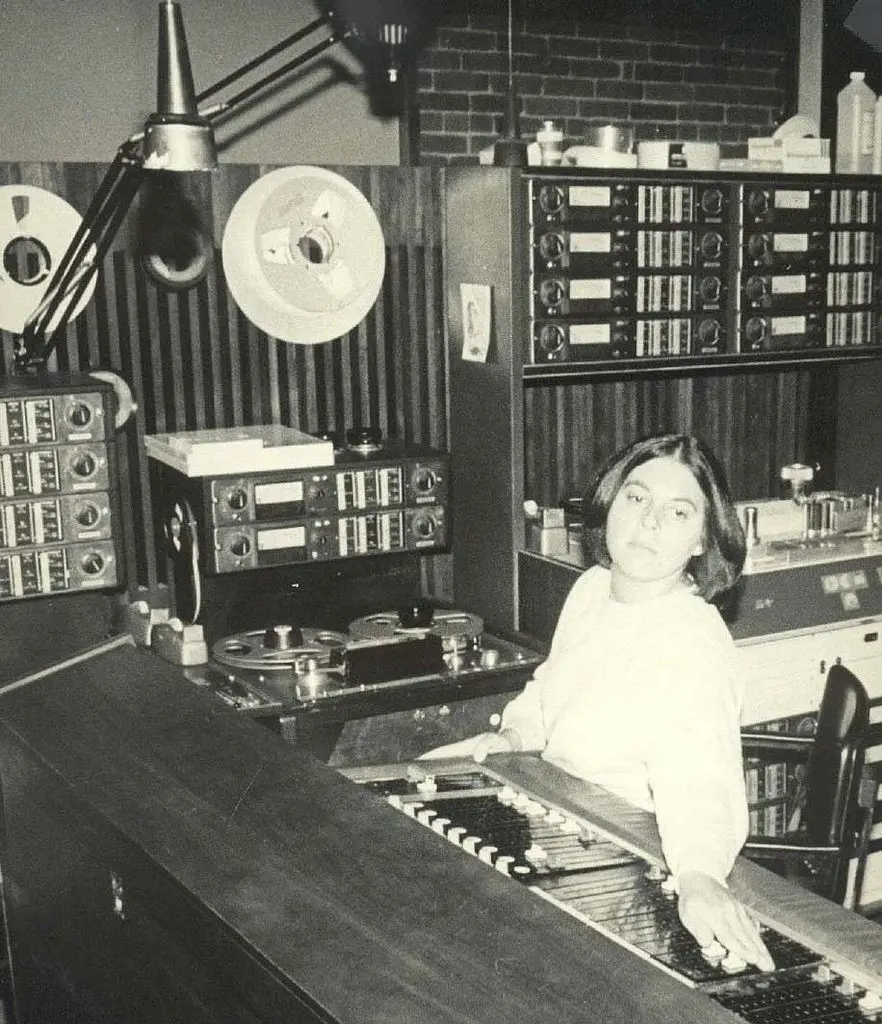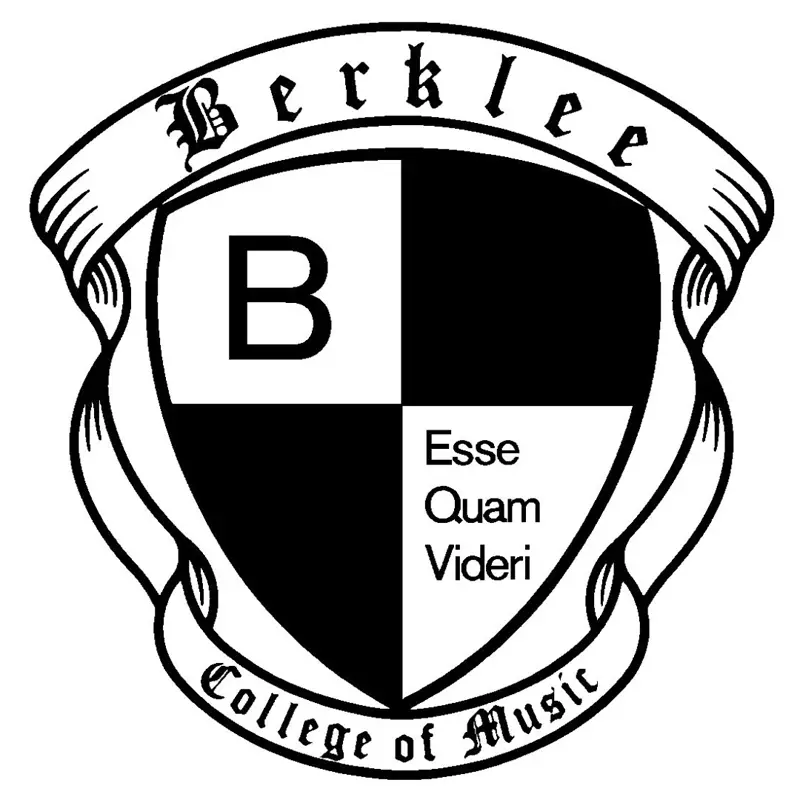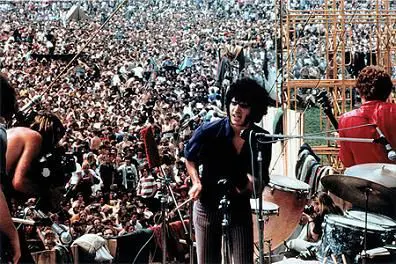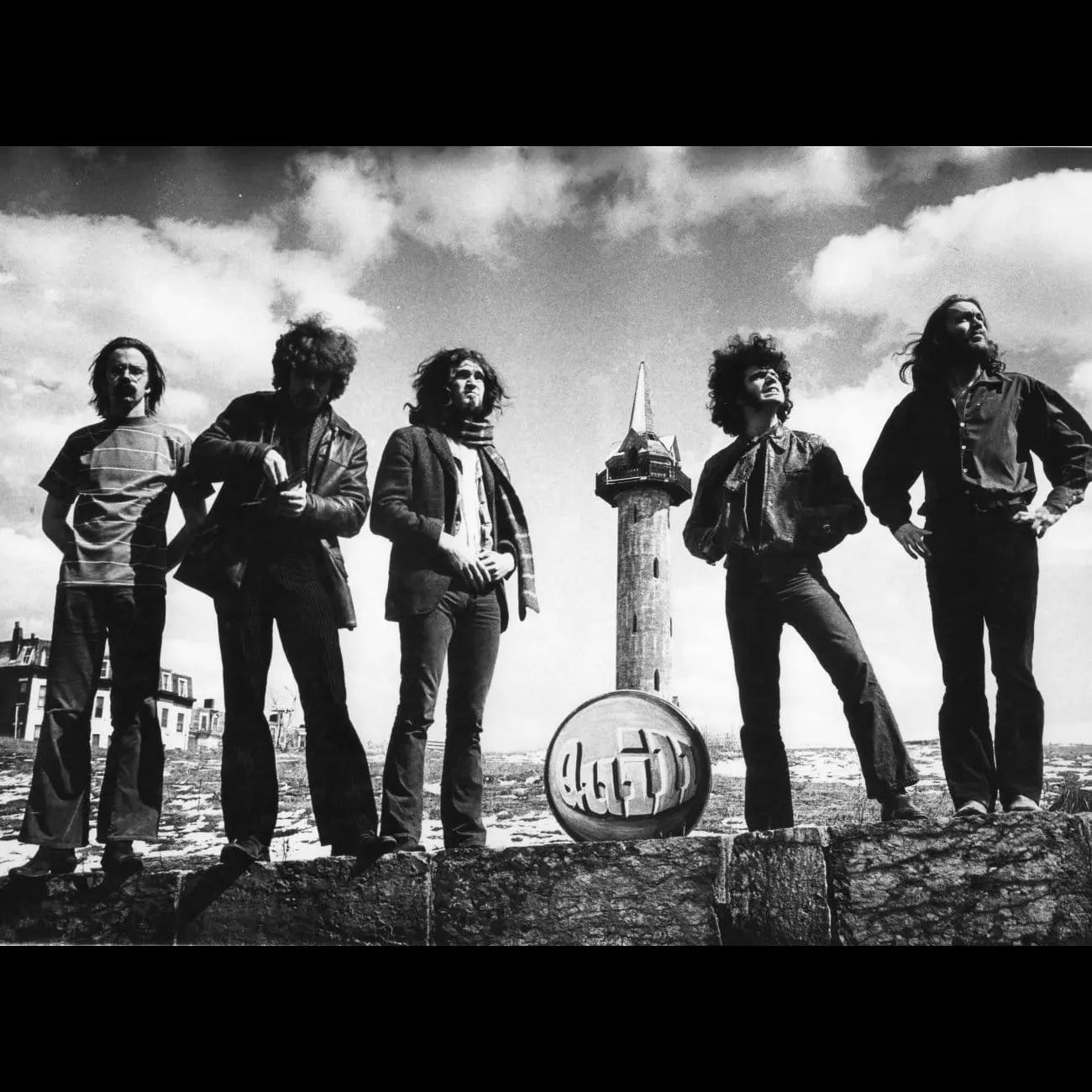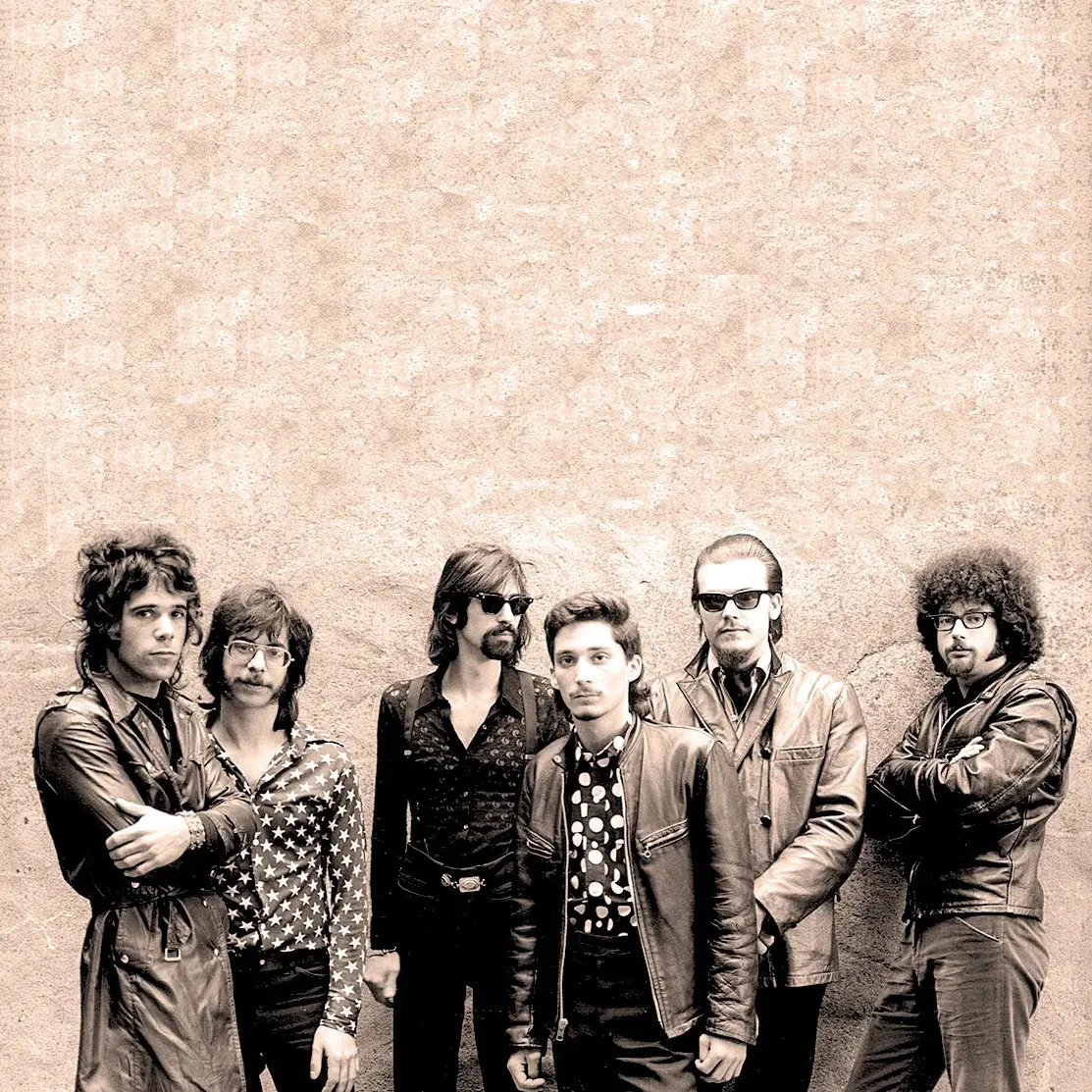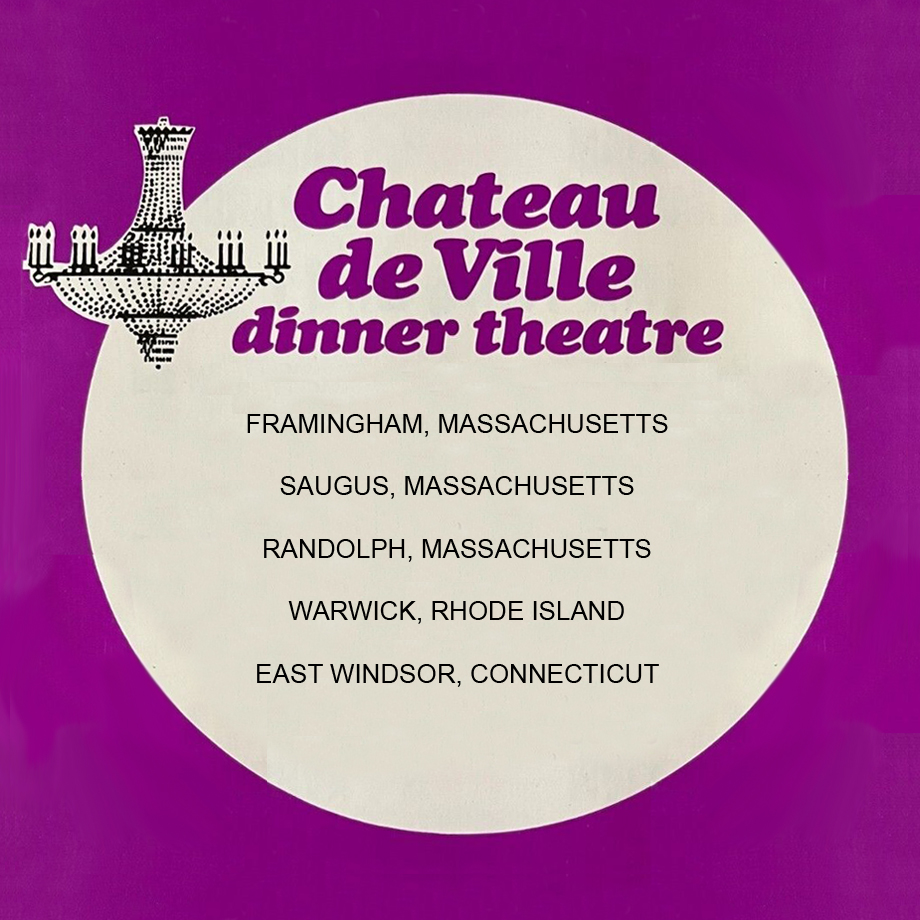Arthur Baker
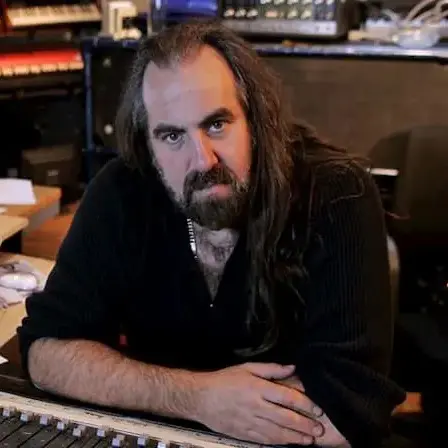
Anyone who’s spent even one hour inside a modern dance club over the past four decades has probably heard an Arthur Baker-produced and/or mixed track. And Baker’s singular, sweeping role in redefining dance music makes even the laughably oxymoronic phrase “new and improved” start to make sense.
From his very first deejaying gig in the post-flower-power, pre-disco early ‘70s and countless others at suburban supper clubs like the Chateau de Ville in the Saturday Night Fever-crazed mid-‘70s to spearheading a musical revolution in the ’80s by making remixes standard in the pop/rock mainstream, Baker’s creative shadow towers above virtually everything that’s happened in electronic-dance music, hip hop and synthpop since the introduction of compact discs in 1982.
EARLY YEARS, MUSICAL BEGINNINGS
An oft-imitated, highly visible figure who’s collaborated with artists as diverse as Bob Dylan, The Rolling Stones, Afrika Bambaataa and New Order, Baker was born in Brookline, Massachusetts on April 22, 1955. His family lived in Mattapan until he was in third grade, when they moved to Needham. He graduated from Needham High School, where he played JV basketball and English and writing were his favorite subjects.
While nobody in his family played any instruments, his mother loved singing and had something of a musical lineage, her cousin being Sid Ramin, who arranged “West Side Story” and wrote the theme song to Candid Camera and other TV shows. Baker says his first exposure to music was his parents’ sizeable collection of Broadway, Frank Sinatra and Nat King Cole albums and hearing the cantor and the choir at temple. While he’s never had any formal training – “tried clarinet and sax and failed,” he says – he’s played bass and keyboards on a number of the umpteen recordings he’s produced, mixed or remixed.
Baker cites a major part of his musical schooling as listening to Boston’ s WBCN and WILD as a teen. “WBCN was really important because it was a rock station, but they’d play everything,” he says. “They’d play Al Green, Gamble and Huff stuff, The O’Jays, Joe Simon along with all the new rock stuff. And WILD was a great soul station. Basically, I got my education through radio.” Among his favorite blues and rock acts are The J. Geils Band, The Who, The James Montgomery Blues Band, Aerosmith, Led Zeppelin, Orpheus, The Rolling Stones, The Allman Brothers and Jimi Hendrix.
RECORD SHOP JOBS, PHILLY SOUL, EARLY DJ GIGS
Baker fed his radio-fueled musical hunger by hanging out at record shops, which became a well-paying pastime – not in a financial sense initially – when he worked at a friend’s parents’ record store and was paid in promo LPs, then took a cash-paying part-time job at Soundscope on Boylston Street in Brookline when it opened in 1971. His favorite genre became “Philly soul,” originated by Kenneth Gamble and Leon Huff – founders of Philadelphia International Records, Motown’s arch rival – and personified by songs like The O’Jays #1 hit “Love Train” in 1973, the year Baker enrolled at Hampshire College.
Upon arrival at Hampshire, he began deejaying. “There was nothing else I wanted to do other than play and make music except playing for the Celtics, which wasn’t going to happen,” he says. Using a few turntables and a GLI deejay mixer – called “the poor man’s Bozak” after the first commercially available deejay mixer invented by Rudy Bozak in 1971 – he spun wax at parties and other events. On weekends, he was a regular at Downstairs Records in New York City’s Times Square, opened in 1973 and what Baker calls “probably the first dance-music shop anywhere.”
After dropping out of Hampshire in 1976, Baker returned to Boston and began deejaying mostly at what he calls “the worst, shitty mafia clubs.” He became both famous and infamous for his profoundly punk approach, smashing records and throwing the pieces across the dance floor when people stayed seated. When not working, he often went to watch and hear the era’s “big five” Boston deejays – Danae Jacovidis, Jim Stuard, John Luongo, Cosmo Wyatt and Joey Carvello – at clubs including Rhinoceros, Chaps, Celebration, Mirage, Future, K-K-K-Katy’s and Cache.
FIRST PRODUCTION, MIXING PROJECTS
Baker’s foray into production began in 1977, when he convinced then Intermedia Sound Studios owner Dan Cole (guitarist/trombonist with Quill from 1967-70) – whom he’d met during an audio engineering seminar in 1976, Baker’s only formal training in the field – to give him free studio time at night. After hiring an arranger and a band, the result was the Baker-produced and mixed (with John Luongo) “Losing You,” which Montreal-based indie label owner Pat Deserio released as a 12” single that year.
After that, he began recording a full album of his Gamble and Huff-style songs with a group of 13 session musicians that included the late deejay/drummer Russell Presto and Berklee College of Music student (now professor) Tony Carbone on keyboards, but ran out of cash after starting 10 tracks.
FIRST ARRANGER, SONGWRITER CREDITS
Serendipitously, that’s when Baker met Boston native Tom Moulton, who’s been known in the recording industry as “the father of the disco mix” ever since he mixed Gloria Gaynor’s 1975 album Never Can Say Goodbye.
Moulton listened to the four most completed songs, made a deal with Baker to acquire the tapes and – completely unannounced to Baker – in 1979 Casablanca Records issued them as the EP T.J.M. (short for Thomas Jerome Mouton), with Baker listed only as arranger and songwriter, not producer. Feeling ripped off and pissed off at the time, eventually Baker saw a bright side. “I got a bit screwed on that one,” he said in 2007. “But at least it came out and my name was on it.”
NORTHEND, FIRST PRODUCTION CREDIT, “RAP-O CLAP-O”
From that point on, Baker’s career soared, starting in 1979 when he, Presto and Carbone formed garage-house trio Northend and their single “Kind of Live (Kind of Love)” – Baker’s first producer credit – was a major hit at New York’s top dance clubs. Later that year, Baker worked with Latin soul-style innovator Joe Bataan on his classic novelty-rap hit “Rap-O Clap-O.”
“HAPPY DAY,” TOMMY BOY RECORDS, AFRIKA BAMBAATAA
In 1980, Northend recorded “Happy Days” (featuring vocalist Michelle Wallace), which went to #9 in Billboard’s Club Play Singles chart and has been cited as the inspiration for Madonna’s 1983 #1 US/UK hit “Holiday.” In 1981, Baker relocated to New York and joined Tommy Boy Records, his first project being producer (and co-mixer, with deejay Shep Pettibone) of Afrika Bambaataa’s seminal single “Jazzy Sensation” and his next as producer and co-writer of Bambaataa’s 1982 iconic “Planet Rock,“ which won Billboard‘s Trend Setter Award and is now considered a hip-hop milestone.
ROCKERS REVENGE, NEW EDITION, T LA ROCK, FREEEZ, NEW ORDER
In 1982, Baker produced “Walking on Sunshine” by Rockers Revenge, a group he formed with reggae singer Donnie Calvin, which hit to #1 in the Billboard Dance chart, and he signed New Edition to his newly founded Streetwise label, producing and mixing their debut single “Candy Girl,” which soared to #1 in the Billboard R&B and the UK Singles charts in May 1983.
Also in 1982, Baker signed deejay and former break dancer T La Rock to the Streetwise sublabel Partytime and his first single on the label, “It’s Yours” (the first to feature a Def Jam Recordings logo), is considered one of hip-hop’s most defining tracks. Also that year, Baker produced Freeez’s UK dance hit “I.O.U.” and New Order’s “Confusion,” the latter being a dance-club staple to this day.
REMIX REVOLUTIONARY
In 1984, Baker spearheaded a revolution by propelling remixing into mainstream pop/rock with his housed-up electro-urban versions of Cyndi Lauper’s “Girls Just Wanna Have Fun” and three songs from Bruce Springsteen’s Born in the USA album. He went on to produce remixes for an eclectic range of others including Diana Ross, Tina Turner, Jeff Beck, Hall & Oates, Fleetwood Mac, The Rolling Stones, Face to Face and Pet Shop Boys. Also that year, he produced his own break-dance classic, “Breaker’s Revenge,” for the film Beat Street and co-wrote and produced New Order’s follow-up single “Thieves Like Us.”
BOB DYLAN, “SUN CITY,” DEBUT ALBUM, AL GREEN, FILM WORK
In 1985, Baker mixed and helped arrange Bob Dylan’s Empire Burlesque album and co-produced (with Steven Van Zandt) the anti-apartheid track “Sun City,” which featured several dozen major artists including Lou Reed, Bonnie Raitt and Peter Wolf. In 1989, he recorded his own debut album, Merge, as Arthur Baker & the Backbeat Disciples (followed in 1991 by Give in to the Rhythm) and wrote and produced Al Green’s “The Message is Love” (then Green’s “Leave the Guns at Home” in 1991).
In 1991, he was music supervisor for the films Fried Green Tomatoes and Listen Up: The Lives of Quincy Jones; he’s also supervised and produced tracks for Pretty in Pink, Ferris Bueller’s Day Off, The Flintstones, Something Wild and A Life Less Ordinary.
LONDON YEARS, BABYLON ZOO, BAKER’S DOZEN, ASH
In 1995, Baker moved to London and co-founded a chain of billiards bars called The Elbow Room, took an ownership stake in several restaurants and became a regular at a number of the city’s dance clubs.
In 1996, his remix of then-unknown Babylon Zoo’s “Spaceman” hit #1 in the UK after being used in a Levi Strauss ad campaign. While living in the UK, Baker hosted a radio show, Baker’s Dozen, on London’s XFM and produced/mixed Brit-pop acts including Ash, including their song “Life Less Ordinary,” which hit #2 in the UK Indie chart. In 1998, he began recording an album with members of New Order, Ash and others that “will see the light of day in 2023, its 25th year in the making,” he says.
“RETURN TO NEW YORK” PARTIES, MOVE TO MIAMI
In 2002, Baker created and fronted promotional efforts for “Return To New York” parties in London, now-legendary events that introduced up-and-coming groups as well as era-defining acts such as Tom Tom Club and Blondie. The events went global and have been held in Toronto, Amsterdam, Paris, Barcelona, Ibiza, Miami and even New York itself.
In 2015, Baker returned to the US and settled in Miami, immersing himself in the city’s Latin rhythms while collaborating with local legends including Murk and Laz Casanova. Between 2018 and 2020, he produced and re-released multiple tracks on his own label, Baked Recordings, plus Rockers Revenge’s “What About The People,” which hit #1 on the Trax Source chart.
DANCE MASTERS SERIES, ROCKERS REVENGE DOCUMENTARY
In 2021, when Baker remixed his third New Order single, “Be A Rebel,” Edsel Records issued Arthur Baker Presents Dance Masters: The Shep Pettibone Master-Mixes. The series’ second release will be of Baker’s own material and the third will be of John Luongo’s. A documentary about Rockers Revenge, On A Mission, will be released at some point in 2023, he says, to celebrate the group’s 40th anniversary.
COMMENTS ON MAKING DANCE MIXES
Asked about the secret to making killer dance mixes, Baker cites boots-on-the-ground club experience over technological wizardry. “You have more control now in the studio, that’s the whole new thing,” he said. “But I’ve never made a great dance record that wasn’t the direct result of being in a club the night before. Never.”
“And when you make a dance record, the objective is clear: to make people dance and have a good time,” he added. “You really can’t take it too seriously.”
(by D.S. Monahan with thanks to Lennie Petze)

